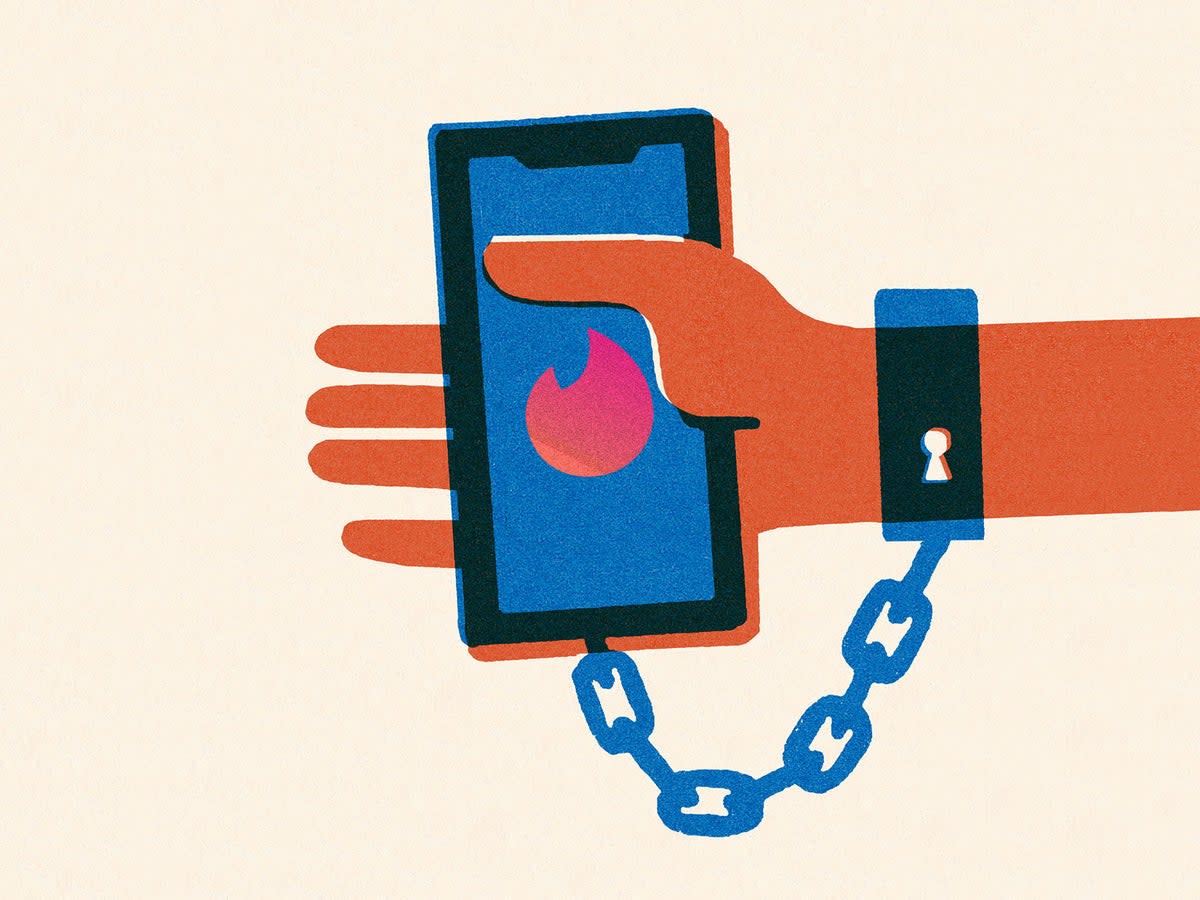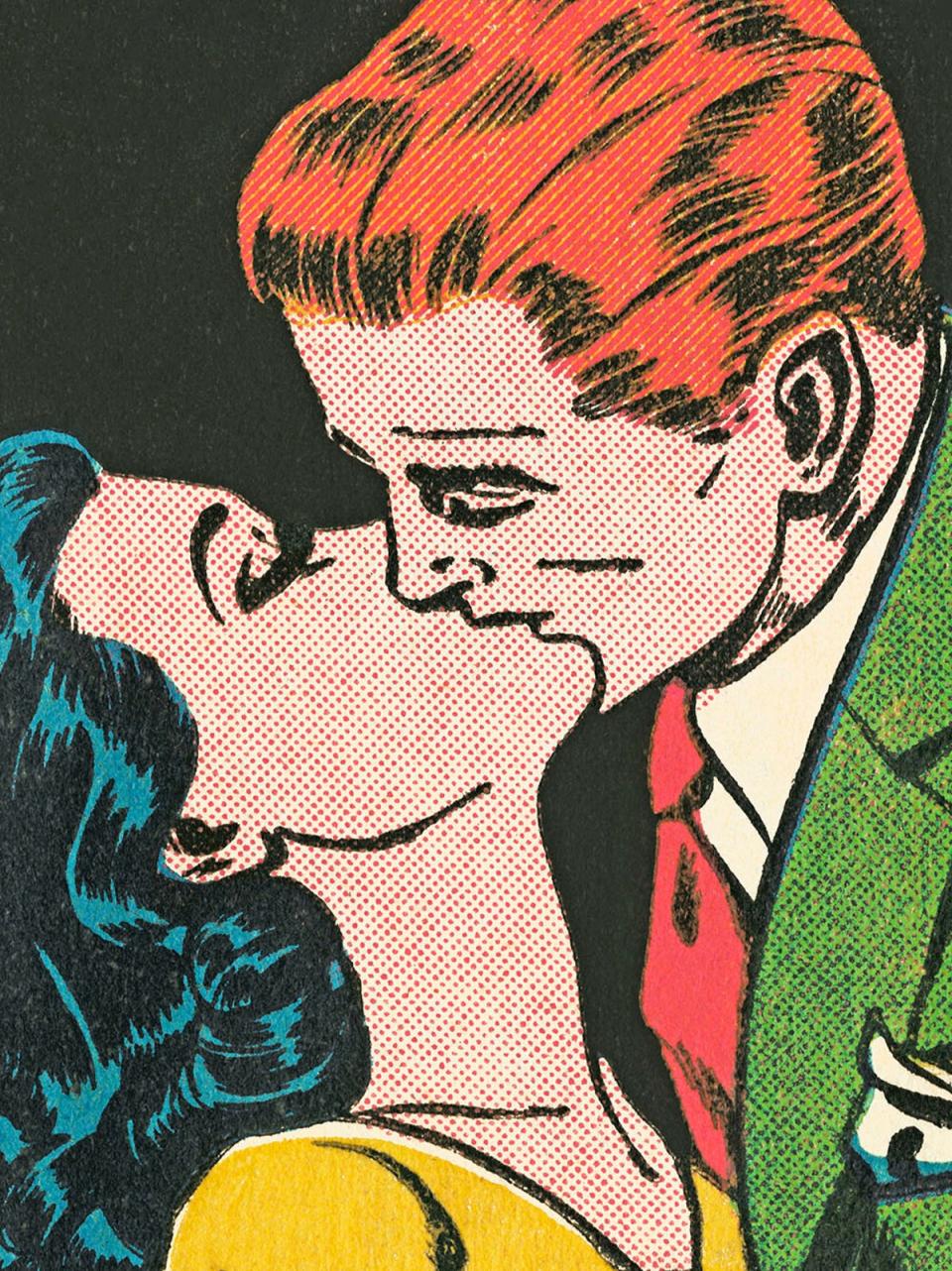We’ve spent 10 years on Tinder – will we spend eternity?

It’s easy to think of 2012 as a simpler time. Indeed, it’s become something of a cliché for centrist media types to rhapsodise about the London Olympics as the last bastion of a more liberal age. Yet when it comes to dating, it’s difficult to deny that a decade ago seems like a different era entirely: a lost world of slipping someone your number, putting personal ads in a newspaper, or connecting with a bookshop magnate in an “over-thirties” chatroom. Before “ghosting”, “catfishing” and “breadcrumbing” conjured anything other than children’s fairy tales.
Back then, Tinder – which celebrates its 10-year anniversary next month – felt like something of a fairy tale, too, designed to help people find their happy endings. International dating and relationship coach Christiana Maxion describes the thrill she felt when she heard about the dating app for the first time. “When a friend introduced me to the world of eligible, hot, New York bachelors via the swipe of a thumb, I wondered what on earth this sorcery was,” she laughs. Her second thought was simple: “get this on my phone!” The idea of Tinder, she continues, “seemed like witchcraft, but the kind I wanted to dabble in.”
A decade on, however, and dating app life feels decidedly less magical. A recent study might have predicted that more than half of couples will meet via the internet by 2035, but, according to the Pew Research Center, 35 per cent of current or recent users of dating apps say that online dating has made them feel more pessimistic. As Maxion herself puts it, “dating app fatigue is definitely real”. While apps might have made it quicker to find dates, it increasingly feels like they haven’t made the dating game any easier. And with an ever greater number of apps on offer — Tastebuds for music lovers, Loosid for the sober, Tabby for a Cat Person, Feeld for a threesome — keeping up with matches and messages can now seem less like sorcery and more like life admin. And, no, there’s nothing less sexy than that.
Is this really what the future of dating holds? An ever-increasing profusion of apps catering to increasingly niche interests? Everyone locked in a battle between apps they come to despise, and staying single for life?
Given that dating apps are now a multi-billion dollar industry, it’s doubtful we’ll see them disappearing any time soon. Indeed, there are signs that the next decade of dating could be even more technology driven – as different from our current dating world as we are from the late-Nineties chatroom romances of You’ve Got Mail. Maxion believes that “with new technologies, improved algorithms, avatars, and the rise of the metaverse,” we are only at the beginning of the dating revolution. We’ll undoubtedly, she adds, “see a move towards more niche dating apps”.
Jessica Alderson is the co-founder of one such app: So Syncd, inspired by the Myers-Briggs Type Indicator that matches users based on their personality types. She sees the widening of the app market as a reason to be optimistic. “I think that dating app fatigue will actually become less of an issue going forward,” she says, as targeted apps make it “easier for people to find matches who are on the same wavelength”. While So Syncd currently functions like any other dating app, Alderson suggests that might be temporary. “I can see a future where dating apps take a mixed reality approach,” she says. “You could be sitting at home and instead of viewing profiles on your phone, you’d be viewing people as full-body 3D avatars.”
This is a common forecast. Rachael Lloyd works as a relationship expert at Eharmony, the dating website that launched a good 12 years before Tinder, ushering in the new millennium of online dating in the process. She anticipates “hologram video first dates, where you can actually see each other beamed in 3D and feel like you’re literally in each other’s company.” This technology is already at our fingertips, so perhaps the only shocking thing is that it hasn’t been used for dating yet. As Lloyd points out, “you can see how well this kind of tactic works with ABBA’s new tour.”
Laura Buckley is a dating coach and matchmaker at Secret Alchemy, and also predicts that the future of dating will track with technological advances. Her view of apps’ increasing intelligence, though, is less rosy. “I’ve recently heard about a [forthcoming] app that allows you to message someone you saw on the tube [or] in the coffee shop if you fancied them and didn’t get to tell them,” Buckley says. As appealing as the idea might seem, Buckley thinks it’s asking for trouble. “It’s a stalker’s paradise!”
When Tinder first revolutionised dating, there were widespread fears that it would commodify relationships, turning dating into a no-effort transaction. Like a Deliveroo for sex. An Amazon Prime for intimacy. But now that we’re so accustomed to seeking connections through algorithms, are we sleepwalking into an even more dystopian state of affairs? Well, that all depends on whether you’re creeped out by the idea of your toaster dictating your love life.
I’d love to see a rebellion against apps, where people close their accounts and spend more time increasing their ‘in real life’ networks
Research carried out for Eharmony by Imperial College London suggests this may be the next logical step in dating tech. “Data from our smart homes may help inform compatibility matching on dating platforms in years to come,” Lloyd says. Future daters might well opt to “share their lifestyle habits via anything from their smart showers to their toasters and watches. [They] give vital clues as to their routines, dietary preferences and health.” In other words, your sex life could be determined by the contents of your colon. Gillian McKeith, eat your heart out.
With health insurance companies undoubtedly rejoicing that such a sci-fi future is potentially on the cards, perhaps it’s no wonder that some people are taking the opposite approach – opting for the old-fashioned “IRL” meet instead. In the online/offline dating wars, Buckley is clear on where she stands. “Given that the vast majority of relationships still start offline,” she says, “I’d love to see a rebellion against them, where people close their accounts and spend more time increasing their ‘in real life’ networks. Going out of the house, looking up from their screens.”
There are certainly hints that many people are doing exactly that. According to dating app The Inner Circle, three quarters of single people in the UK would still prefer an IRL meet-cute. A whopping 76 percent of people also claim they’re open to being chatted up in real life. Post-pandemic, it seems people are craving “authentic” experiences and organic connections more than ever, and Maxion suggests that “more and more singletons are reverting back to ‘old school’ dating and meeting potential mates ‘in the wild’.”
And if you’re sick of swiping but your in-person chat-up skills are feeling rusty after successive lockdowns, there are ways to take the whole palaver out of your hands almost entirely. Maxion advocates treating dating like any other modern lifestyle habit. “Most people outsource their meals to delivery services, their workout routine to a personal trainer, their diaries to a personal assistant,” she says. “You could also outsource the dating process and hire a matchmaker.”

Lara Besbrode is a matchmaker, dating expert and the founder of the matchmaking service The Matchmaker UK. She may be biased when it comes to this approach to dating, but it’s hard to argue with her claim that “while it’s unlikely that you’ll bump into your future spouse in the supermarket or in the gym, you can’t deny the emotions that offline dating evokes”. In comparison, she says “online dating apps provide a quick dopamine boost that quickly fizzles out.”
With metaverse and smart toaster dating going up against professional matchmaking services and good old fashioned IRL flirting, it might seem like the future of dating will remain polarised. But, ultimately, the likelihood is that the pursuit of love will increasingly involve a bit of everything: real-world dates, apps expanding into offline spaces, the further breakdown of the already blurry lines between real and virtual. In the end, having more dating options can’t be a bad thing. Not everyone will want to hook up in VR spaces with the help of interactive sex toys, but not everyone wants to ask their coffee-shop cutie what they’re doing later, either.
The good news is that no matter what else happens in the coming decades, the option of getting drunk and getting off with your mate will almost certainly never go away.

